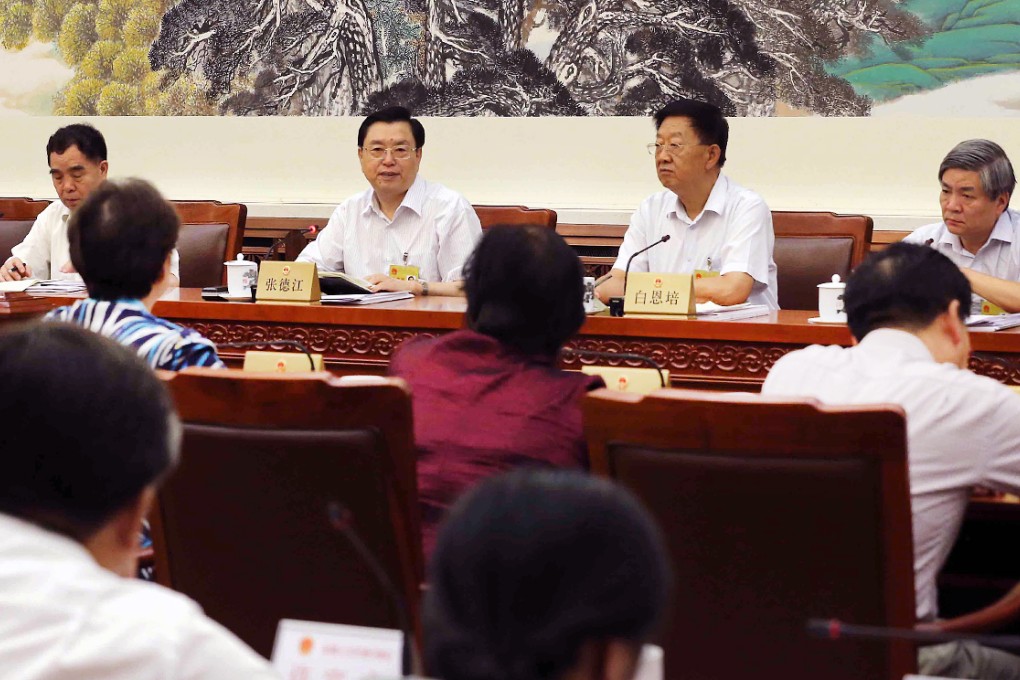NPC Standing Committee gets down to details of rules for 2017 poll
Standing Committee's decision on 2017 chief executive election must take into account national security and sovereignty, delegates say

The nation's top legislative body should "make decisions on the core issues" concerning how Hong Kong elects its leader by universal suffrage in 2017, Xinhua said last night.
It said there had been controversy over the method for nominating candidates, and some suggestions had even breached the Basic Law.
The Xinhua report also said the decision by the National People's Congress Standing Committee, to be unveiled on Sunday, would have a bearing on national security and sovereignty.
The report cited participants in the first group discussions on the issue yesterday.
The views appeared to differ from the observations of Hong Kong deputies who sat in on the discussions.
It is an appropriate time for the [NPCSC] to give a clear decision
The local deputies, including Ip Kwok-him and Maria Tam Wai-chu, told the media that the discussions had focused on endorsing the Hong Kong government's report on electoral reform, while the finer details - such as whether aspirants should be required to secure support from at least half of nominating committee members before their names could be put on the ballot paper - had not been fully discussed.